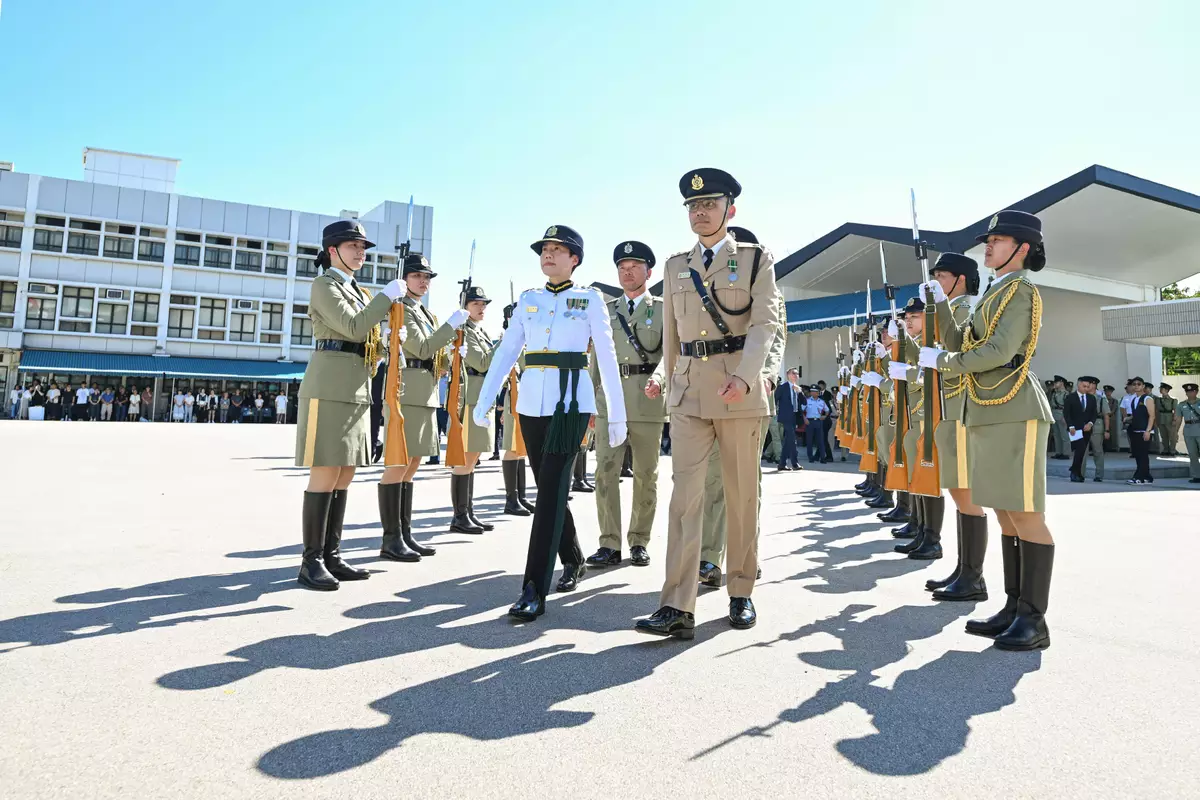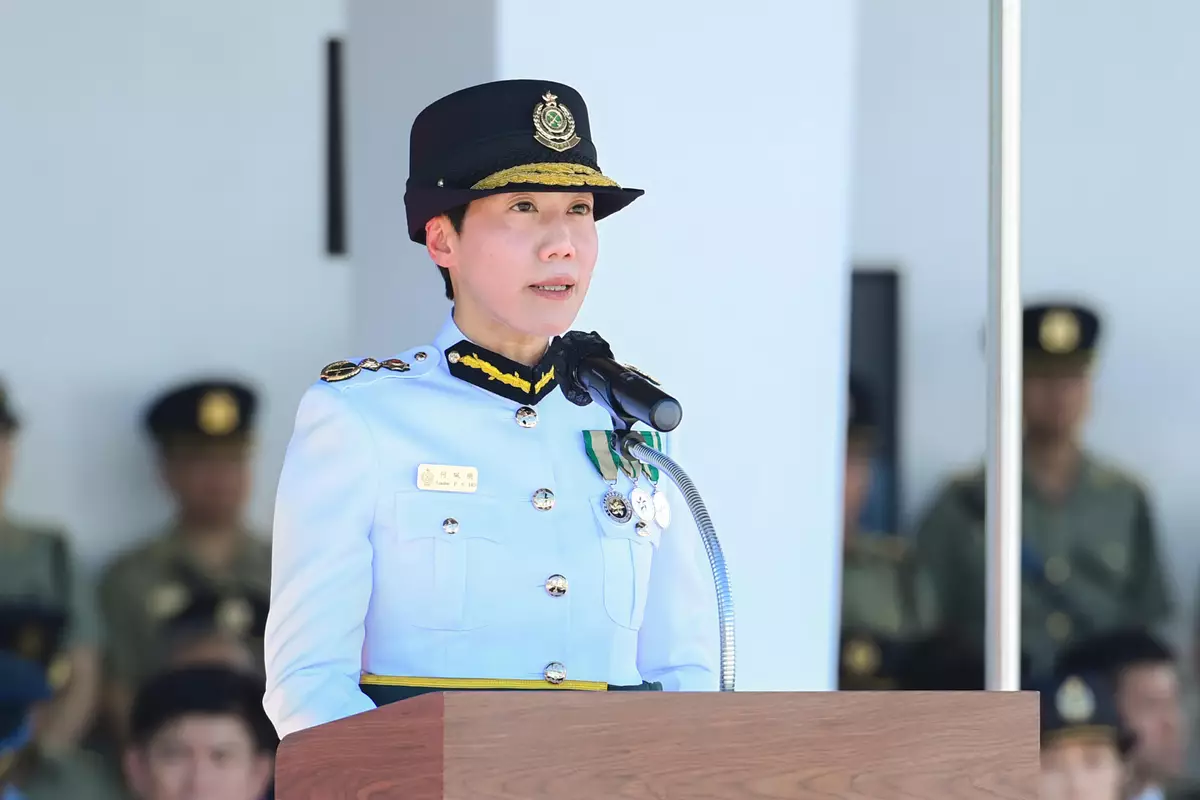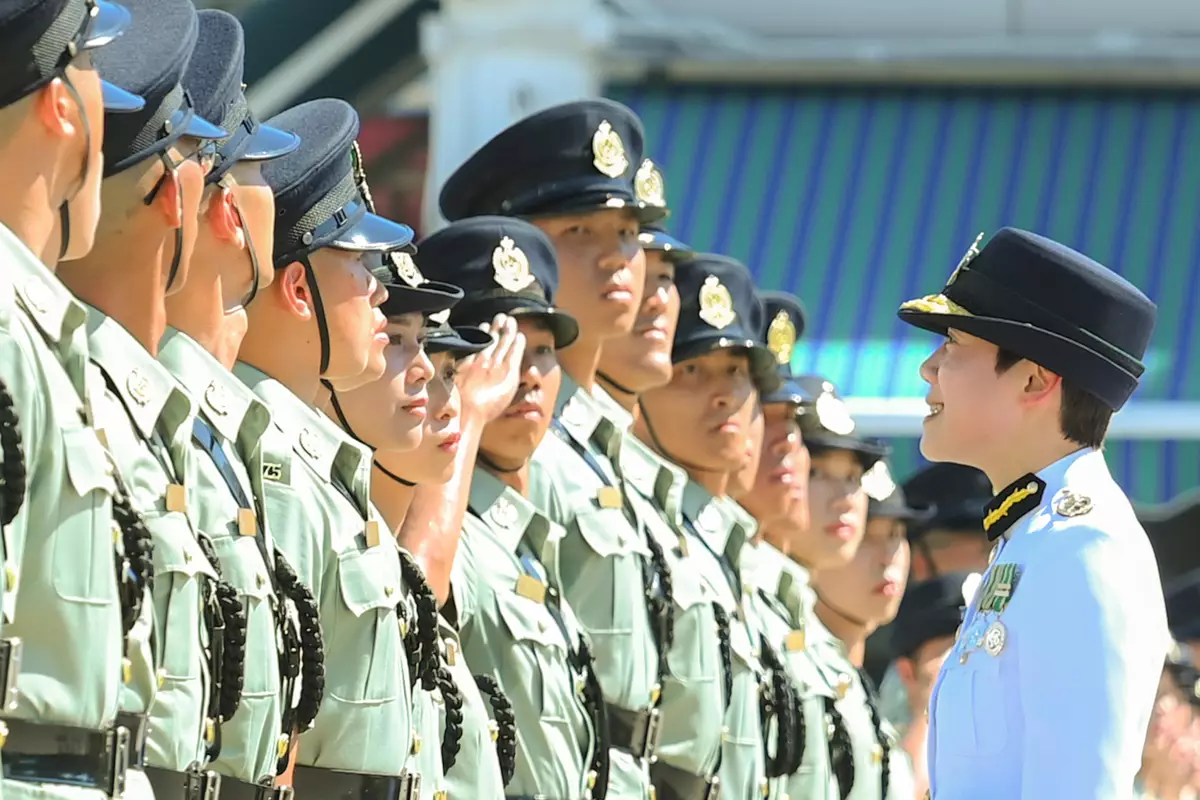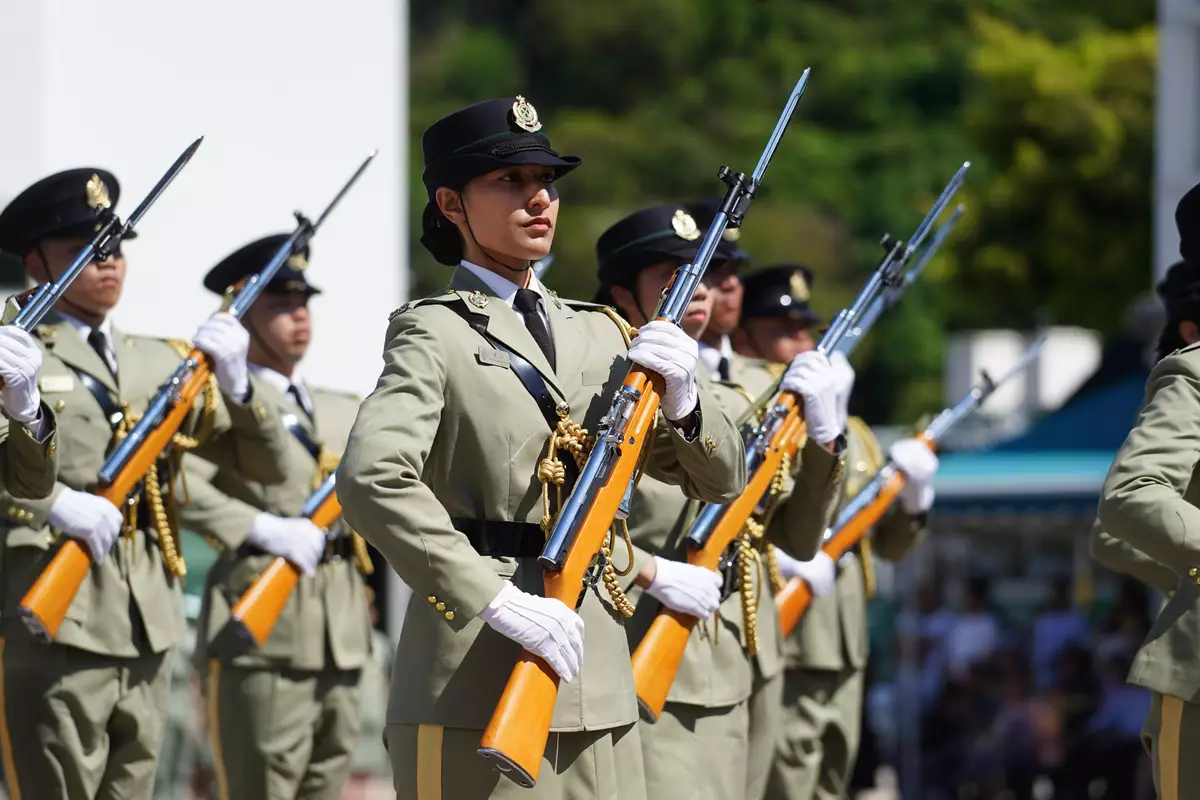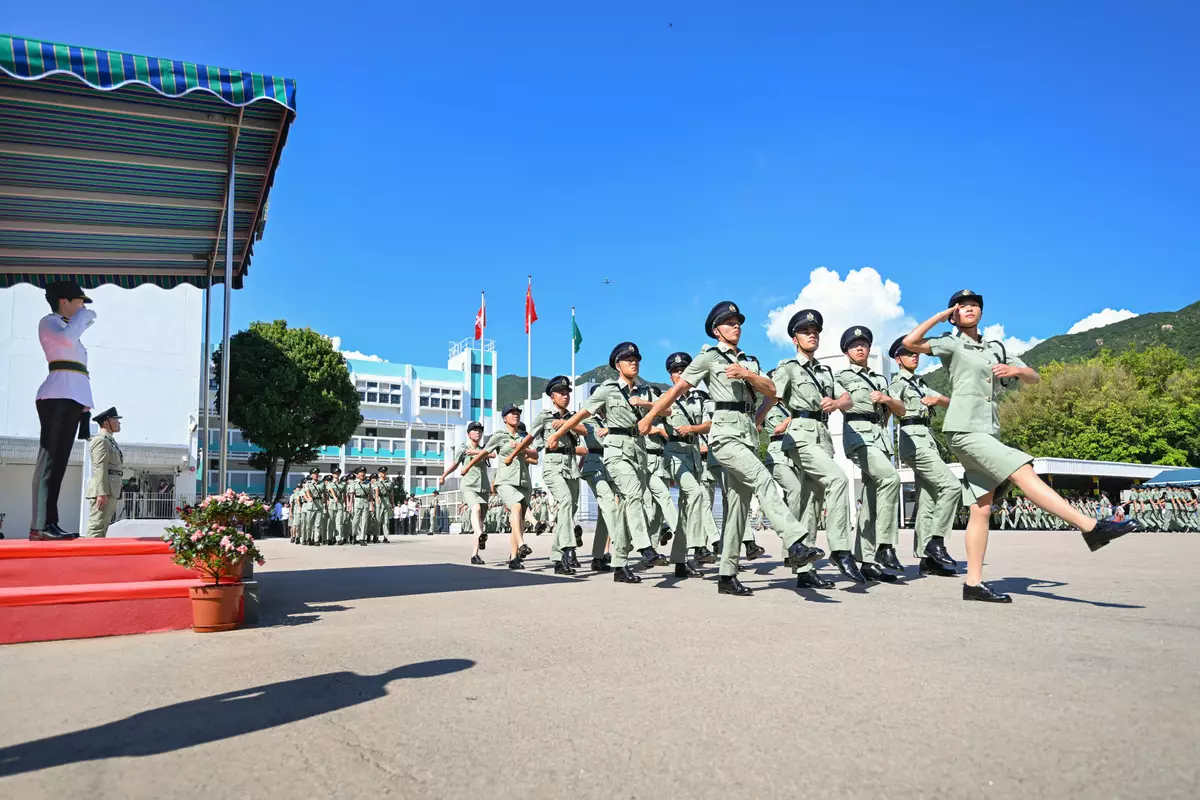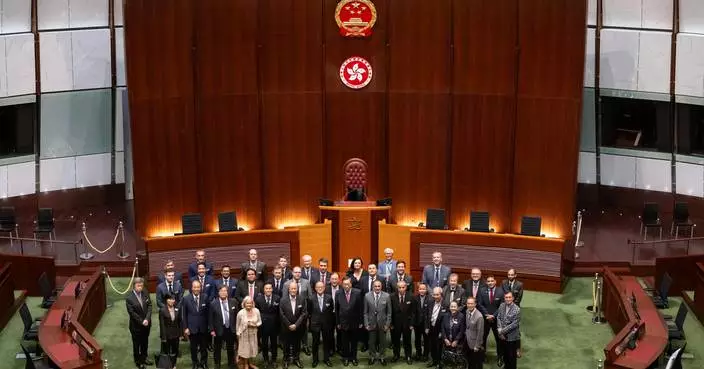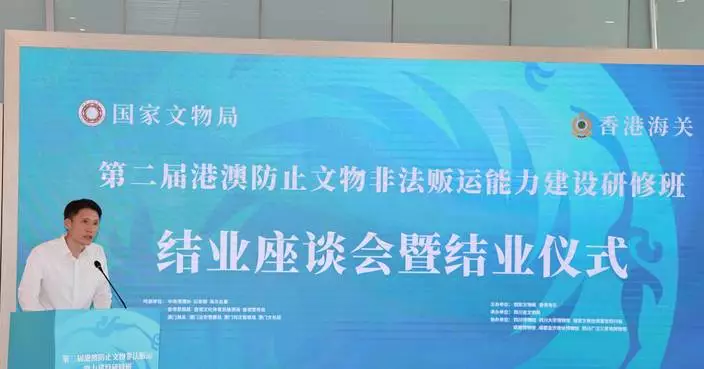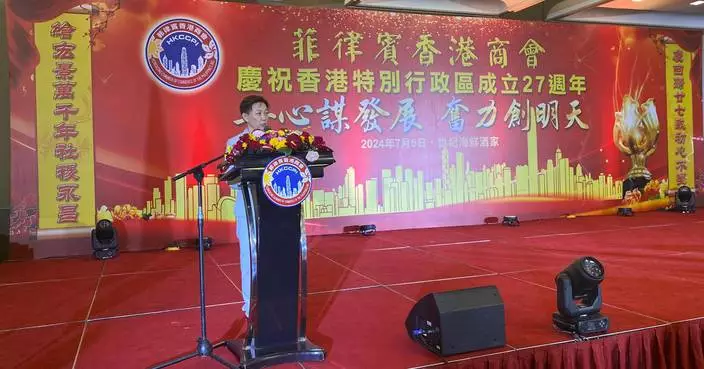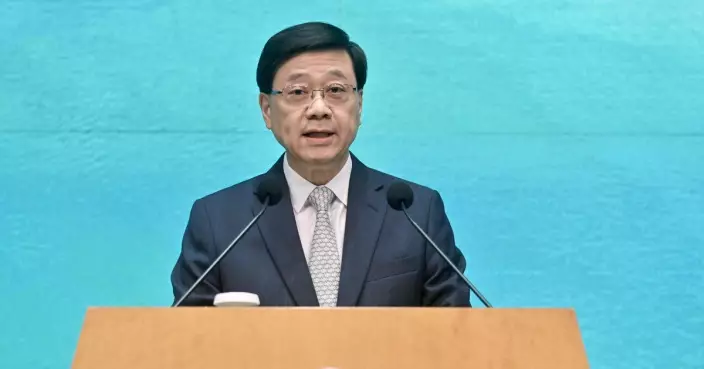Government ensures merit-based appointments to advisory and statutory bodies for effective policy formulation and civic engagement in hong kong
Following is a question by the Hon Doreen Kong and a reply by the Secretary for Home and Youth Affairs, Miss Alice Mak, in the Legislative Council today (July 3):
Question:
The Government has all along relied on advisory and statutory bodies (ASBs) to advise on its policies and provide services. In this connection, will the Government inform this Council:
(1) as the Government has indicated that its appointments of individuals to ASBs are based on merits, but it is learnt that members of the Culture and Heritage Commission (Commission) appointed by the Government are mostly from the banking, financial services and business sectors, with only a small number of them being leaders of cultural institutions, of the criteria adopted by the Government for making the relevant appointments, and how it ensures that the proportion of the backgrounds of the appointed members is consistent with the purpose of establishing the Commission;
(2) as the Government currently has around 520 ASBs, how the Government assesses the effectiveness of setting up a system of such bodies, so as to ensure that the roles and functions of these bodies can meet the needs of society; and
(3) as the Government reviewed the system of ASBs in 2003 and indicated that it would compile a Code of Practice to provide guidance to such bodies, of the progress of the relevant work; whether the Government will consider revisiting the policies relating to the system, such as regularly reviewing the effectiveness of the work of such bodies and requiring them to streamline their structures and increase the use of social media, so as to ensure that the system meets the needs of society and effectively enhances Hong Kong's civic awareness and social participation?
Reply:
President,
As a key component in public administration, advisory and statutory bodies (ASBs) play an important role of helping the Government in the consultation with stakeholders, formulation of policy objectives and performance of functions. At present, there are about 520 ASBs in Hong Kong, including advisory boards and committees, appeal boards, public bodies, regulatory bodies. Advisory bodies provide a broad platform for making recommendations on government policies according to their respective terms of reference and reflecting the views of various sectors of the community and relevant organisations. Statutory bodies, on the other hand, are public corporations, statutory bodies or other organisations established in accordance with ordinances. Apart from giving advice to the Government, they are also responsible for the provision of public services and the discharge of statutory functions.
My consolidated reply, in consultation with the Culture, Sports and Tourism Bureau, to various parts of the question raised by the Hon Doreen Kong is as follows:
(1) The basic principle of the appointments of individuals by the Government as non-official members to ASBs is "merits", which is to ensure that the appointed members are the most suitable candidates who are capable of meeting the specific requirements of the ASBs and will actively participate in their work. When making an appointment, the relevant bureau or department will take into account the candidate's ability, expertise, experience, integrity and commitment to public service, with due regard to the functions and nature of business of the ASB concerned as well as the statutory provisions of statutory bodies. Furthermore, the Government has all along adopted the "six-year rule" (i.e. a non-official member should not serve on the same ASB in the same capacity for more than six consecutive or cumulative years) and the "six-board rule" (i.e. a non-official member should not serve on more than six ASBs at any one time), so as to ensure a reasonable turnover of members and distribution of work.
Regarding the question on the appointments to Culture Commission, the Culture, Sports and Tourism Bureau advised that the Government established the Culture Commission in 2023 for providing recommendations on the Government's policies with regard to arts, culture and creative industries. There are23 non-official membersin theCommission. Basically all membersof the Culture Commission have backgrounds related to the arts, culture or creative industries. They areindustry representatives, members of relevant ASBs of relevant arts organisations, and academics in related professions (such as music and drama). Some members alsopossessexperiences in other professionalareas,with main occupationor backgroundrelated to the businesssector(including banking and real estate), politics, tourism industry, or the banking sector. These diverse experiences enhance and broadenmembers'discussion at the Culture Commission, such as promoting cross-sector and cross-genre collaborations, or strategies to encourage private sector's participation in driving the development of the arts, culture and creative industries, further driving the industry building, strengthening collaboration among different stakeholdersofthe industry,and promoting the integrated developmentof culture and tourism. Overall speaking, members of The Culture Commission represents a balanced composition that facilitates the Government to promote the development of arts and culture in Hong Kong frommultiple perspectives, and is in line with the Government's principlesof soliciting diverse opinions and appointing individuals on merit.
(2) and (3) Since the objectives, functions and nature of the various ASBs are different, their composition, operation and review are taken care of by the respective bureaux and departments. These bureaux and departments closely monitor the operation of the ASBs under their purview and keep in view whether their composition can meet the policy needs and prevailing social circumstances, so as to ensure that the ASBs can perform their duties effectively.
The Government conducted a review on the system and operation of ASBs in 2003 and continuously reported to the then Panel on Home Affairs of the Legislative Council on it. In fact, in the light of the scope and content of the review set out in the reports, the Government has formulated or updated the general guidelines on appointments to ASBs. The guideline set out clearly the guiding principles for compliance by appointing authorities, including "the principle of appointment by merits", "the six-year rule", "the six-board rule", and the benchmarks for participation of female and youth members. Besides, the Government has also drawn up guidelines on the operation of ASBs in relation to matters such as enhancing transparency and making arrangements for declaration of interest. At present, the overall compliance with the guidelines by the bureaux and departments is satisfactory. For example, the proportion of non-official female members appointed by the Government increased from 22.8 per cent in March 2004 to 35.6per cent in December 2023, meeting the target of 35per cent set earlier.
Moreover, the Government launched in 2017 the Member Self-recommendation Scheme for Youth (MSSY) to engage young people in public affairs. Persons aged between 18 and 35, and with the commitment to serving the community, may self-nominate to become members of ASBs. The Chief Executive announced in the 2022 Policy Address to expand the MSSY and aim to triple the number of number of participating advisory committees from around 60 in mid-2022 to no less than 180 within the current term of the Government to engage more young people in public affairs and enhance their interaction and trust with the Government. 85 committees have participated in the MSSY so far, offering 172 seats in total. Recruitment of the next phase of MSSY will start in mid-2024. In addition to the MSSY, the Government has also invited applicants attending the interviews to authorise the inclusion of their personal particulars in the Central Personality Index database, so that bureaux and departments may retrieve the information for reference during selection of candidates for appointment as members of other ASBs under their purviews. So far, more than 570 posts are held by young people appointed to ASBs directly or indirectly through the MSSY.
In addition, the Government has been encouraging ASBs to enhance their transparency and make use of the internet in disseminating information wherever feasible. We have made public the above principles of appointments to ASBs by uploading them onto the Home and Youth Affairs Bureau (HYAB)'s webpage. Members of the public can have access to the information about the ASBs through hyperlinks on the HYAB's webpage.
We will continue to monitor the implementation of the relevant policy and mechanism, so as to enable ASBs to continue effectively fulfilling the role of helping the Government in the consultation with stakeholders, formulation of policy objectives and performance of functions.

Source: AI-generated images


